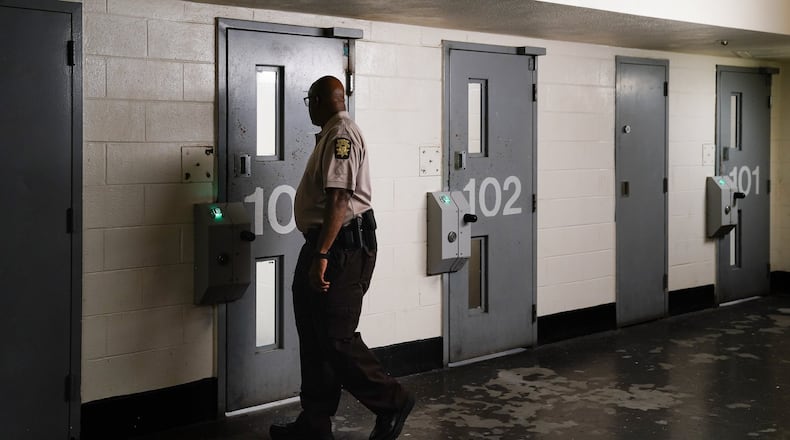More than 300 extra Georgians could end up in the prison system if cuts are made to the state's accountability courts budget, department officials said.
Council of Accountability Court Judges executive director Taylor Jones told lawmakers Wednesday that 336 fewer people would be able to participate in the diversion program if the agency’s budget is cut by 4%.
Gov. Brian Kemp last summer asked state agencies to trim 4% from the 2020 fiscal year budget and another 6% in fiscal 2021, which begins in July.
Jones told a panel of Senate budget writers that Kemp’s proposal actually cuts 5.3% — or almost $1.4 million — from the agency’s budget, meaning even fewer people could be diverted to the program.
Accountability courts, the centerpiece of former Gov. Nathan Deal's efforts to overhaul the state's criminal justice system, take in drug addicts, the mentally ill, veterans and those charged with DUI. The 18- to 24-month-long programs allow participants to avoid jail and prison time if they stay sober, get treatment, get an education and hold a job.
Kemp has cast the budget reductions as part of a broader effort to streamline government, and his aides have noted that last year he tried to add $4.3 million to accountability courts but was blocked by state lawmakers.
Jones said cutting the agency’s budget would reduce the services the accountability courts provide.
“There would be less treatment offered ... less surveillance visits performed by local law enforcement, less drug testing that would occur,” she said. “But overall we would anticipate an increase downstream in the correctional and juvenile systems.”
Georgia Department of Corrections Commissioner Timothy Ward said the agency had not accounted for an increase in inmates. But the increase would be minimal since the department currently oversees more than 53,000 inmates.
Over the past eight years, with increased funding and incentives, the number of accountability courts statewide has increased from 72 to 163.
About 17,000 people completed programs through the state’s accountability courts in 2017.
About the Author
Keep Reading
The Latest
Featured




